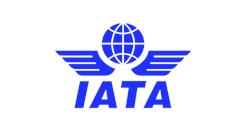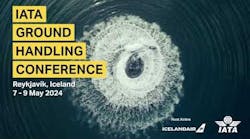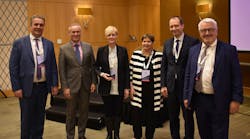At its heart, aircraft maintenance is a complex interface between machine components and the trained professionals who service them. It is only fitting then that reducing the scope of errors that coincides with such a system would be a topical concern for industry players across the world. Indeed, whether it be through engineering advancements or changes in industry oversight, there is no doubting the vast improvements to aviation safety that have taken place over the years. However, behind the complexities of aircraft maintenance lays a single linchpin – the human.
Since the early 80s, industry regulators have sought to address the role played by human factors on the flight deck, having established and developed what is now termed Cockpit Resource Management (CRM). It was not until much later in the 1990s that the same avenue of training was applied to the maintenance sector.
Dainius Sakalauskas, the Deputy Head of FL Technics Training, suggests that, ‘Given the requirement for effective communication and teamwork that exists between mechanics and senior engineers, the evolution of human factors training, otherwise known as Maintenance Resource Management (MRM), was likely an inevitability. With studies suggesting that maintenance error is a leading contributor to between 15 and 18 percent of all accidents, it is perhaps not surprising then that more and more airlines and training institutions have developed rigorous MRM programmes in order to abate the human element of accident causation.’
To place it in perspective, MRM arose from the unique environment in which maintenance technicians operate. It is the nature of the job that predicting an accurate maintenance workload for a set task can only realistically be achieved following a heavy inspection of all components. Leading from this, it is often the case that maintenance companies resort to employing their staff on overtime, thereby increasing the likelihood and occurrence of prolonged work hours. When this is combined with taxing variables, including the tendency for night shifts, the extensive communication that follows delegation of tasks, overwhelming time pressures or, for instance, working on a ramp in subzero temperatures – it illustrates the degree by which human limitations have an impact on air safety.
‘The complex sociotechnical system that defines aircraft maintenance requires above average coordination, communication and cooperation between the various specialists involved in the sector. Prior to any formal MRM training, there were a host of catastrophic airliner accidents for which human error in maintenance was a significant contributing factor. This includes the crash of an American Airlines DC-10 in 1979 leaving 273 dead, the well-known explosive decompression of an Aloha Airlines flight and, more recently, the midair disintegration of a China Airlines B747 in 2002. Rather depressingly, this list isn’t exhaustive, but it does serve to highlight how ingrained MRM has become in the industry,’ comments the Deputy Head of FL Technics Training, D. Sakalauskas.
In Europe, human factors training in the maintenance sector was mandated with a proposed change to JAR-145 [EASA-145 predecessor] in 2002. The move aimed to ensure human factor principles were adhered to when writing and establishing procedures relevant to aircraft maintenance personnel. Since errors in maintenance are mostly latent, effective MRM is broad in focus allowing emphasis on reducing the human element, increasing safety awareness and improving efficiency. Precisely, its goals were to improve communication skills, cease authoritative attitudes in the workplace, enhance team working skills, instil a degree of assertiveness amongst mechanics and provide a universal understanding of the influence held by human factors.
Adding further, D. Sakalauskas suggests that ‘Even aside from the more pressing issue of a major accident, mismanaged human elements in maintenance can forge costly events. For instance, the average cost of an engine shutdown in-flight is roughly €400,000, a flight cancellation can be as much as €50,000, and a turn-back? – Well that can levy anywhere up to €12,000. The key to mitigating the overall risk faced by an airline is by orientating the entire maintenance base towards a safe and error free performance. Indeed, it is only through proper training programmes can this be assured.’
About FL Technics Training:
FL Technics Training is a provider of technical training for the aviation industry. The company offers comprehensive training services including basic training and examination, aircraft type training and specialized training for aircraft maintenance technicians as well as administrative and management personnel. FL Technics Training is part of an integrated aircraft maintenance and repair organization (MRO) FL Technics.
Based in Vilnius, Lithuania, FL Technics Training is certified as a European Aviation Safety Agency (EASA) Part-147 training organization providing courses for basic, aircraft type training and customized training programs designed according to individual client requirements. The company serves a wide range of customers from Europe and the CIS (Poland, Romania, Ukraine, Moldova, Russian Federation etc.), Asia-Pacific (including South Korea, Pakistan, Kazakhstan, Tajikistan, and etc.), Africa, Cuba and other regions.
Drawn up in accordance with the requirements of the EASA, FL Technics Training programmes cover four areas: basic training, aircraft type training, specialized aviation training and consulting services. FL Technics Training offers training for diverse aircraft types: Airbus A318/A319/A320/A321, Airbus A380/340/330, ATR 42 - 200/300, ATR 72 - 100/200, Boeing 737 - 300/400/500, Boeing 737 - 600/700/800/900, Boeing 757 - 200, Boeing 767 - 200/300, Boeing 747/777/767, Saab – 340, Saab – 2000, Bombardier CL-600-2B19.
FL Technics Training offers specialized training programs of general interest for technical as well as administrative personnel from Engineering and Planning, Quality system, EASA Regulation Part-145 and Part-M to Fuel Tank Safety courses. Training programs can be adapted to meet the specific needs and requirements of clients.
More than 3000 students for over 45.000 hours per year are trained at the company's theoretical courses in Moscow, Tyumen, Alma Ata, Vilnius and London. Training on the job is executed in Vilnius, Kiev and London.
For further information please visit website http://www.fltechnicstraining.com/




